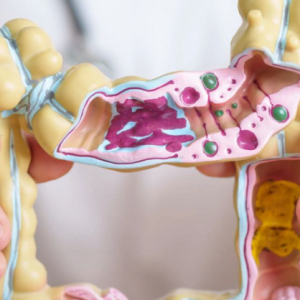
Helicobacter pylori (H. pylori) is a bacterium that attacks the stomach lining and digestive system. Its presence can lead to persistent symptoms such as nausea, bloating, belching, abdominal pain, vomiting, and chronic gastritis. Over time, this inflammation interferes with proper digestion and can cause significant discomfort.
H. pylori infection is highly prevalent, particularly in developing regions, where studies suggest that over 80% of adults and around 10% of children are affected. Alarmingly, having this bacterium in the body increases the risk of developing stomach cancer by up to six times. For this reason, early treatment and restoring the balance of good bacteria in the gut are crucial.
Effective Natural Remedies for H. pylori
1. Green Tea
Research shows that moderate consumption of green tea can help slow the spread of H. pylori. Drinking one cup daily supports gastric health, helps prevent inflammation, and may relieve gastritis symptoms.
2. Garlic

Garlic contains natural antibiotic and anti-inflammatory compounds that help fight bacterial infections. In one study, individuals infected with H. pylori who consumed two medium cloves of garlic at lunch and dinner experienced a significant reduction in bacterial activity. Garlic can be eaten raw, cooked, or added to meals for daily support.
3. Propolis
Propolis, a resinous compound produced by bees, contains over 300 beneficial substances. Scientific studies have confirmed its antimicrobial effects, showing that propolis can slow bacterial growth, including that of H. pylori.
4. Broccoli Sprouts
Broccoli sprouts are rich in sulforaphane, a compound with potent antibacterial and anti-inflammatory effects. Laboratory research has demonstrated that sulforaphane helps reduce both gastric inflammation and bacterial load in those infected with H. pylori.
5. Manuka Honey
Renowned for its strong antibacterial properties, Manuka honey has long been used as a natural remedy for infections. To support stomach health, consume one tablespoon of Manuka honey every morning on an empty stomach or spread it on whole-grain toast.
6. Cranberry Juice

Cranberries have well-known antibacterial and anti-inflammatory properties. Drinking pure cranberry juice regularly may help limit bacterial colonization in the stomach and aid in flushing harmful microbes through the urinary tract.
7. Black Seeds (Nigella sativa)
A clinical study conducted in 2010 found that taking 2 grams of ground black seed daily, alongside the medication omeprazole, produced better results than conventional treatment alone. Black seeds are rich in antioxidants and can support overall digestive and immune health.
8. Probiotics
A balanced gut microbiome is essential for healthy digestion. During H. pylori infection, this balance is often disrupted, increasing the risk of inflammation. Consuming probiotic foods such as yogurt, kefir, sauerkraut, or probiotic supplements can help restore beneficial bacteria and support healing of the stomach lining.
Dietary Recommendations for H. pylori Infection
To help manage H. pylori naturally, it’s important to follow a diet that promotes gut health and reduces inflammation.
Foods to Include
- Flax and chia seeds — rich in omega-3 fatty acids that help soothe inflammation
- Kefir — an excellent source of live probiotics
- Cruciferous vegetables — such as broccoli, cabbage, and kale to support detoxification
- Wild fish — provides anti-inflammatory omega-3 fats
- Manuka honey — one tablespoon daily for antibacterial support
- Fresh berries — rich in antioxidants to protect stomach cells
Foods to Avoid
- Spicy or pickled foods that can irritate the stomach lining
- Carbonated and caffeinated beverages
- Processed and refined grains low in fiber
Conclusion
Managing H. pylori infection naturally requires a balanced approach — combining targeted foods, natural antimicrobials, and probiotic support. While these remedies can complement conventional care, it’s important to consult a healthcare professional before beginning any treatment plan. By making mindful dietary and lifestyle choices, you can strengthen your digestive system, restore gut balance, and reduce the long-term risks associated with H. pylori.




